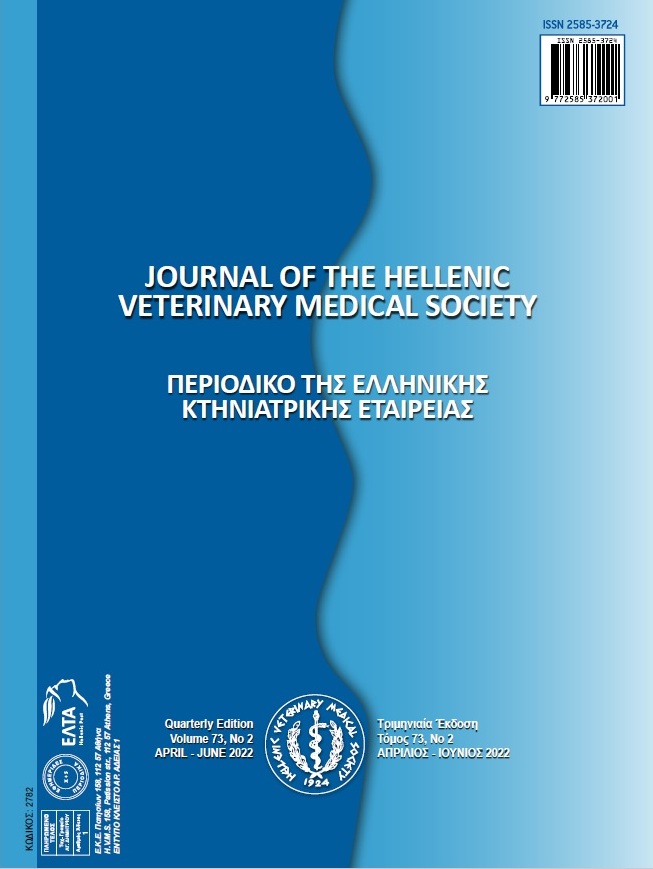A Comparison of Clinical and Radiological Outcomes of Different Anatomical Regions Plate osteosynthesis in Cats with Body of Ilium Fractures

Abstract
Pelvis fractures in cats are one of the most common orthopedic problems that cause serious injuries. Pelvic fractures are between 20-32% out of all fractures in cats. Os Ilium fractures constitute 18-46% of pelvic fractures. In the presented study, the post-operative clinical and radiological results of placing the plate on the dorsal, ventral and lateral of the corpus ossis ilii in cats with os ilium fractures were evaluated.
Twenty three cats (different races, ages and sex) with corpus ossis ilium and multiple fractures (sacro-iliac joint luxation, acetabulum fractures, os ischium fractures) were used as a materials. Anamnesis, clinical and neurological examinations of patients were taken and 3 groups were formed for this study. Group 1; In 7 cases, the plate was placed in the dorsal of the body of ilium, in group 2, 7 cases in the lateral of body of ilium and in Group 3; in 6 cases, in the ventral of the body of ilium. Operations were performed under general anesthesia. LC-DCP plate or reconstruction plates were used for fixation. There was no narrowing in the pelvic canal and no screw loosening in cases applied dorsally and ventrally. In 6 (85.7%) of 7 cases, there was no narrowing in the pelvic canal in lateral application. Only one case had problem. Recovery rate (85.7%) in all cases.
In conclusion, in cases of os ilium fracture in cats, no difference was observed between the clinical and radiological (narrowing in the pelvic canal) results of placing LC-DCP or reconstruction plates on the dorsal, lateral and ventral of the bone in the post-operative period. Thus, screw loosening did not occur. But, case selection is important in the lateral, dorsal or ventral application of the plate in os ilium fractures. If the surgical intervention has passed 5-6 days, double plate application provides a better prognosis. Dorsale plate application provides ease of manipulation when compared to ventral application. Also, if the fracture line close to the acetabulum, lateral application should be preferred.
Article Details
- How to Cite
-
Arıcan, M., Zamirbekova, N., Uzunlu, E., Ozdil, B., & Gümüş, F. (2022). A Comparison of Clinical and Radiological Outcomes of Different Anatomical Regions Plate osteosynthesis in Cats with Body of Ilium Fractures. Journal of the Hellenic Veterinary Medical Society, 73(2), 3979–3988. https://doi.org/10.12681/jhvms.25653
- Issue
- Vol. 73 No. 2 (2022)
- Section
- Research Articles

This work is licensed under a Creative Commons Attribution-NonCommercial 4.0 International License.
Authors who publish with this journal agree to the following terms:
· Authors retain copyright and grant the journal right of first publication with the work simultaneously licensed under a Creative Commons Attribution Non-Commercial License that allows others to share the work with an acknowledgement of the work's authorship and initial publication in this journal.
· Authors are able to enter into separate, additional contractual arrangements for the non-exclusive distribution of the journal's published version of the work (e.g. post it to an institutional repository or publish it in a book), with an acknowledgement of its initial publication in this journal.
· Authors are permitted and encouraged to post their work online (preferably in institutional repositories or on their website) prior to and during the submission process, as it can lead to productive exchanges, as well as earlier and greater citation of published work.


